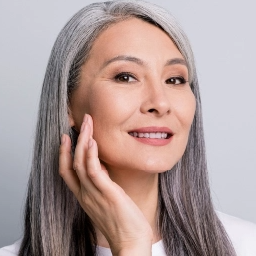Rosacea, sometimes mistaken for acne, is a chronic skin condition characterized by red patches of skin, pimple-like lesions, and broken veins. Most of the 6 million people in the United States with rosacea are of European descent and have fair complexions.
Although researchers don’t understand why rosacea affects some people but not others, heredity plays a role. And once it develops, it’s with you for life.
However, as with many chronic diseases and conditions, what can’t be cured can be managed. Dermatologists offer effective rosacea treatments to minimize redness and restore the health and vibrancy of your skin, and they can help you identify your rosacea flare triggers.
At Dermatology Institute & Skin Care Center, our dermatologist, Paul Yamauchi, MD, PhD, and our skin specialist Summer Nguyen Liew, MSPAS, PA-C, diagnose and treat rosacea and other skin conditions. When you experience a flare-up, you can get clearer skin at our Santa Monica, California, office.
Between visits, keep a rosacea diary to identify what causes your skin to flush and break out in rashes or pustules. Not sure where to start? The following are the most common triggers.
Sunshine
Most people love sunny days, but if you have rosacea, you should enjoy them under the protection of a hat and sunglasses. Exposure to the sun’s UVA and UVB rays is a significant cause of rosacea flares.
Even driving in a car or working by a window can expose you to enough sunlight to trigger your rosacea. To avoid flares:
- Stay indoors between 10 am and 4 pm
- Always wear a wide-brimmed hat outdoors
- Wear sunglasses when outdoors
Use and reapply broad-spectrum sunscreen with an SPF of 30 or more. Be careful when buying sunscreens because drugstore brands may include ingredients that could irritate your sensitive skin and cause another outbreak. Our team offers a medical-grade skin care line called Sutani™, which includes safe and effective sunscreens.
Stress
Do you ever get so mad or stressed out that you can feel your face get hot with emotion? When you’re red-faced or blushing, your blood vessels dilate and fill with more blood. Soon enough, you may find yourself in the middle of a rosacea flare-up.
Take time to learn ways to soothe your nervous system so that you can manage stress and avoid a rosacea flare-up. Try deep breathing, meditating, yoga, or talking to friends to keep your temperature — and your temper — at an even keel.
Dehydration
Keep your body adequately hydrated. A dry mouth or throat or feeling thirsty indicates that your cells aren’t getting the water they need to function.
Drink healthy and hydrating liquids, such as water or green tea, throughout the day. Fill your diet with liquid-rich fresh vegetables and fruits. If you live or work in a dry environment, consider a humidifier, which helps keep your skin plump and healthy with moisture.
You also want to lock in any environmental moisture into your skin. After a warm bath or shower, be sure to just barely pat yourself dry. Then, use a high-quality moisturizer to lock in the hydration.
Hot or spicy foods and alcohol
Spicy foods and alcohol turn up the heat in your body. When your temperature rises and your skin flushes, you’re more likely going to have a rosacea breakout.
Stick to herbs to flavor your foods. Avoid hot peppers or anything that has a burning sensation.
Even hot beverages, such as hot cocoa or coffee, could cause a flare-up. Furthermore, alcohol dilates your blood vessels and can worsen your rosacea.
Temperature extremes
Extreme temperatures are bad for rosacea. Hot weather makes you red and sweaty. Cold winds batter and dehydrate your skin.
Stay indoors when it’s too hot, cold, or windy. Be sure to moderate your indoor temperature by staying away from radiators, keeping the thermostat at a moderate level, and avoiding the cold and dry blast from the air conditioner.
Avoiding these triggers can keep your skin clearer and more comfortable. In fact, nearly all rosacea patients who make lifestyle changes to manage their disease notice a reduction in flare-ups.
To get help with rosacea, phone our friendly staff or send us a message online for skin resurfacing today.











